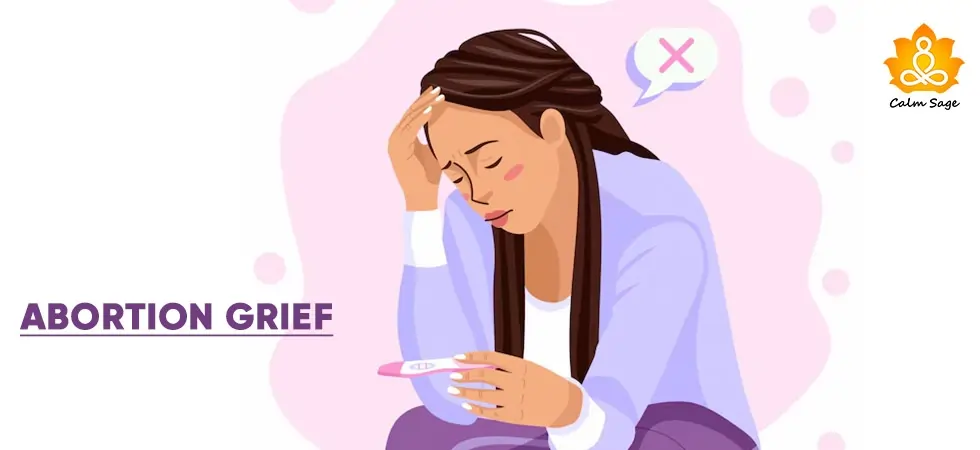Misdiagnosed With Depression? Don’t Settle – Here’s What to Do Next!

Depression is a complicated and serious mental health condition that needs a nuanced approach when it comes to diagnosing depression. Unfortunately, many people receive a misdiagnosis of depression, leading to a frustrating and potentially life-changing experience.
Studies suggest that the percentage that can be misdiagnosed with depression could range from 10% to a staggering 40%. This range highlights the need for a more comprehensive approach to mental health assessment and the importance of considering alternative explanations for symptoms – depressive or not.
In this article, we’re going a bit deeper into understanding why people get misdiagnosed with depression, its impact, and what you can do next to cope with such a diagnosis – or lack of it.
Why is Depression Misdiagnosed?
Beyond mimicking or overlapping symptoms with other conditions, many other factors can contribute to depression misdiagnosis. Some common factors of such a misdiagnosis can include;
1. A Lack of Comprehensive Assessment
Unlike physical conditions, there’s no definitive test or assessment for depression. The diagnosis of depression often relies on a mental health professional’s evaluation of symptoms, which can be subjective to bias.
2. Cultural Factors
Cultural norms can also influence how you express and experience emotional distress. For example, men are more than likely to express depressive symptoms in anger or irritability, often leading to a misdiagnosis.
3. Age Factors
You might also be misdiagnosed with depression because of your age. Yes! As an adult, your depression symptoms can be mistaken for chronic stress or anxiety, leading to a misdiagnosis.
Moreover, depression in children can be misdiagnosed a lot because of age-related manifestations of symptoms. Symptoms such as irritability, academic performance, and physical issues can be mistaken as typical childhood behavior.
4. Gender Factors
Gender stereotypes can also cause a misdiagnosis of depression. For instance, many people believe that only women become overly sad when depressed, so, during an assessment, a counselor might miss depression signs in men who show signs such as aggression and physical behaviors.
Did you know that 30-50% of women with depression can be misdiagnosed because while their symptoms might look like depression, they might be linked with other issues?
5. Medications
Sometimes, the counselor might prioritize addressing symptoms through medications without thoroughly exploring the mental health cause. While medications can be an important part of the treatment plan, it’s important to address the underlying factors behind the condition.
6. Stigma Surrounding Depression
As a patient, people might even feel reluctant to discuss their mental health issues. The stigma surrounding mental health can cause people to downplay their symptoms or avoid discussing their distress, hindering the diagnosis.
What Conditions May Mimic Depression?
Many conditions, like anxiety, ADHD, bipolar disorder, and thyroid, share symptoms of depression, leading to a depression misdiagnosis. Other conditions that may mimic depression can include;
1. Sleep Disorders
Sleep disorders like sleep apnea can disrupt sleep patterns and lead to daytime sleepiness, low mood, and trouble concentrating, all symptoms commonly associated with depression.
2. Anxiety Disorders
Chronic anxiety can manifest as restlessness, trouble sleeping, and constant feelings of worry and fear. These symptoms can be mistaken for depression too.
3. ADHD (Attention Deficit Hyperactivity Disorder)
While ADHD is often diagnosed in childhood, adults with undiagnosed ADHD can live with symptoms like trouble concentrating, feelings of restlessness, and low self-esteem, all of which can resemble depression symptoms.
4. Grief and Loss
The intense emotions that often come with grieving the loss of a loved one can also mimic depression symptoms such as sadness, social withdrawal, and changes in appetite.
5. Bipolar Disorder
Depression is categorized as a mood disorder, the same as bipolar disorder. Bipolar disorder can be misdiagnosed as depression, as the depressive phase of bipolar might mimic depression symptoms. Milder hypomania in bipolar can also be misdiagnosed as depression.
6. Psychotic Disorders
Psychotic disorders such as schizophrenia can manifest in symptoms such as social withdrawal and depression, causing a depression misdiagnosis. This mimicking can cause depression to be misdiagnosed, especially if the psychotic symptoms of schizophrenia are not clear in assessment.
7. Chronic Fatigue
Fatigue, brain fog, and sleep issues that manifest in chronic fatigue can mimic depression. Differentiating these symptoms from depression needs to be thoroughly assessed to avoid a misdiagnosis.
8. Thyroid
Weight gain, tiredness, and mental fog in Thyroid can also resemble depression symptoms. These shared symptoms can lead to depression misdiagnosis. Proper evaluation, including thyroid tests, needs to be conducted to avoid a misdiagnosis.
9. Dementia
Dementia and depression can also share symptoms like memory loss and social withdrawal. A careful evaluation of the symptoms of each condition can give a full picture and avoid a misdiagnosis between the two.
10. Premenstrual Dysphoric Disorder
PMDD or premenstrual dysphoric disorder causes symptoms like mood swings and irritability, which can be shared by depression too. Tracking PMDD symptoms throughout the menstrual cycle can avoid a misdiagnosis.
11. Post-Traumatic Stress Disorder (PTSD)
Post-traumatic stress disorder (PTSD) and depression also share similarities in symptoms such as emotional numbness, social isolation, and frequent mood swings. Getting a proper assessment can help avoid overlooking the trauma aspects of PTSD and avoid a depression misdiagnosis.
12. Low Vitamin D
Low vitamin D can also mimic depression with fatigue, low mood, and poor cognitive functions. To avoid being misdiagnosed with depression when you only have low vitamin and nutrient deficiency, blood tests can be undertaken.
What Does a Depression Misdiagnosis Look Like?
Common warning signs of being falsely depressed can be;
- Your treatment – medications or therapy – isn’t working or showing results after a reasonable trial time
- You are experiencing unexpected weight fluctuations, persistent pain, or changes in appetite
- You might have pre-existing conditions like hyperthyroidism, sleep apnea, or chronic pain
- You might also struggle with specific neurological symptoms such as memory loss, loss of focus, and loss of coordination
Can a Depression Misdiagnosis Impact Your Well-Being?
Without the correct diagnosis and treatment, you might experience a prolonged period of feeling unwell, impacting your personal, professional, and academic life. If you’re prescribed medications for depression, then you might even experience side effects that can worsen your well-being. And more so, when the root cause of your poor health isn’t addressed.
An ineffective treatment plan can also put a strain on your finances, which can worsen your stress and anxiety. Moreover, a misdiagnosis can make it harder for you to communicate your feelings with loved ones, leading to misunderstandings.
When your condition is misdiagnosed as depression, then you might even experience feelings and thoughts of inadequacy and self-blame.
So, what are the next steps?
What to Do When You’re Misdiagnosed With Depression?
If you or your loved one has been misdiagnosed with depression, then you can;
1. Find More Information
Try to keep a journal where you write down your symptoms, including their intensity, frequency, and triggers. This kind of information can help you and your healthcare professional know what to look for.
2. Prepare Questions
Before you go for a mental health assessment, write down questions you have for your healthcare professional about your diagnosis and alternative explanations for your recurring symptoms.
You can ask your doctor questions like;
- Are there any other conditions that can explain my symptoms?
- How do my symptoms align with the depression criteria?
- Are there specific symptoms that point toward a depression diagnosis?
- Given the possibility of a depression misdiagnosis, are there any other treatment approaches we can try?
- What resources can help me learn more about my symptoms?
- Are there any other specific tests or assessments to get a more accurate diagnosis?
3. Talk to a Mental Health Specialist
If you’re unsure about your diagnosis or treatment plan, then you can ask a mental health specialist for their opinion. Getting another professional’s assessment can give you knew information about your symptoms and how to address them.
4. Rethink Your Lifestyle Choices
One thing that mental healthcare includes is how you take care of yourself. If you’re not getting good sleep, then it can influence your thinking, making you seem like you’re depressed.
If you’re not living a healthy and active lifestyle, then it can affect your mental health, making you feel tired and worn down. Rethink your lifestyle choices and help your doctor with a proper assessment, leaving no room for misdiagnosis.
5. Let Yourself Feel Emotions
You need to understand and let yourself process whatever you’re feeling, especially when the feelings are associated with a depression misdiagnosis. Bottling up your emotions will hinder your healing. Allow yourself to feel the sadness, anger, or frustration that comes with a misdiagnosis.
6. Seek Professional Support
Talking to a therapist can help you through the emotional aftermath of a misdiagnosis. A therapist can offer you a safe and non-judgmental space to express your emotions and explore the challenges that come with a misdiagnosis. Therapy can also be a good place to start to develop healthy coping skills and move on.
7. Try Creative Expression
Creative pursuits can also offer a therapeutic way to express your emotions – in a non-verbal way. Whether it’s through painting, playing music, writing poetry, or engaging in other forms of expressive arts, you can tap into your creative side and let the juices flow. This can be therapeutic and empowering in many ways!
8. Learn All About Your Symptoms
Knowledge is power, so use it wisely. Educate yourself about mental health conditions, including symptoms, diagnoses, and treatment options. This self-education can help you participate in mental health discussions with your doctor and make better decisions about your well-being.
9. Be Self-Compassionate
Most of all, be kind to yourself. A depression misdiagnosis doesn’t diminish your experience or its validity. You deserve to feel better, express your feelings, and receive the right treatment. Don’t let one negative experience outshine the rest of your diagnosis. Find the right professional to conduct an accurate assessment.
10. Think Positive
So, you were misdiagnosed with depression? Well, it doesn’t have to stay that way. Misdiagnosis can bring forth feelings of self-doubt or hopelessness. When these feelings and thoughts pop up, challenge them, and replace them with positive thinking. Think about your resilience and the steps you’re taking to get the right help.
11. Connect With Support Groups
If you’re misdiagnosed with depression, then to cope with the feelings that come with such a situation, you can join support groups – online ones or in-person sessions. Connecting with people who’ve been misdiagnosed with depression too can help you get a sense of community and understanding. Sharing your experiences with others who’ve been through similar situations can be validating as well.
Don’t Stop Fighting!
A depression misdiagnosis can be a disheartening experience, but it doesn’t have to stay that way or have to define your experiences. When you learn to see the signs of a depression misdiagnosis, you can stand up for your experiences, and find the path to effective treatment for your existing symptoms.
You’re not alone in this. With knowledge, self-advocacy, and support from the right sources, you can find the right people and the help you deserve. If you’re struggling with feelings of depression or other conditions that mimic depression, then you can reach out to these resources for help;
- The Jed Foundation
- The National Alliance on Mental Illness (NAMI)
- Crisis Text Line: Text HOME to 741741
- Lifeline at 988
Remember, you have the right to feel better and receive an accurate diagnosis and treatment for your symptoms. We hope that the information and resources in this article will help you take charge of your mental health and take proactive steps to find the help you deserve.
You can also let us know your thoughts in the comments below, or write to us at info@calmsage.com for more information.
Until next time, take care!




















